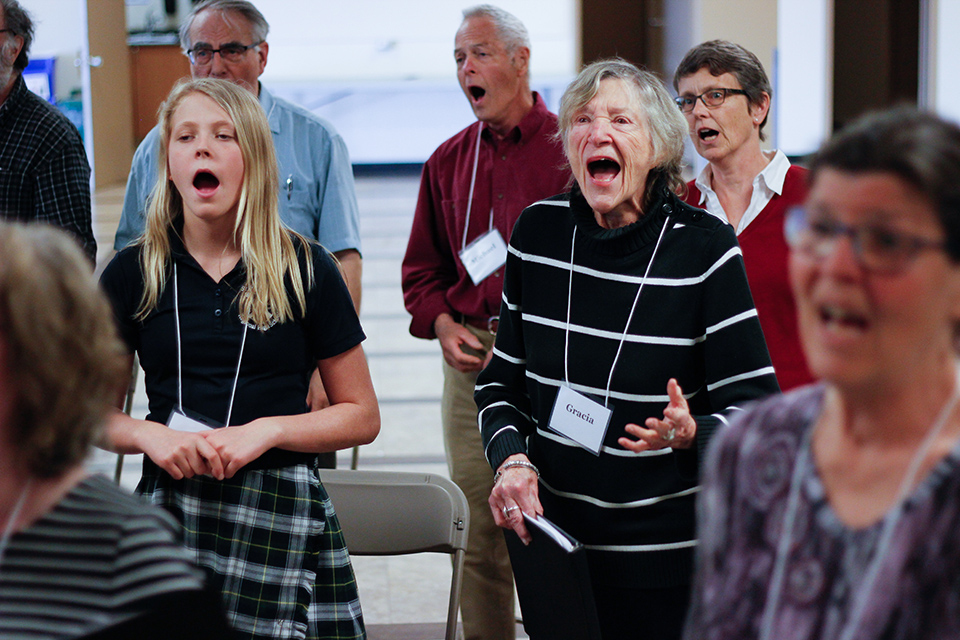Op-Ed: A social prescription for dementia care in Canada
Fine Arts, Social Sciences, Human and Social Development

The following Op-Ed originally appeared in the Hill Times.
Canada’s National Dementia Strategy, the long-awaited blueprint for finding a cure and for reshaping policy, was released last week.
There’s an urgency to act on the key recommendations for research, programs, policies, and services outlined in the report. Over half a million Canadians live with dementia, with approximately 78,000 new cases diagnosed each year, according to the Alzheimer Society Canada. By 2031, dementia rates will double to nearly one million Canadians. Most of us know someone living with dementia and are aware of its medical, financial, and emotional impact on families.
Stigma represents one of the biggest barriers to living with dignity following diagnosis. According to the Alzheimer Society, almost half of Canadians would not want others to know if they have dementia for fear of stigmatization. As a consequence, it is all too common for those with dementia to become socially isolated.
Why is this of concern? Social isolation is linked to elevated stress hormones and inflammation—well-known risk factors for numerous diseases and death. Research findings indicate that social isolation poses a health risk comparable to being sedentary or smoking 15 cigarettes per day. These scientific findings prompted the United Kingdom to appoint a minister for loneliness in 2018—a policy initiative worth considering as we implement our own dementia strategy.
How do we address the deleterious effects of stigma and social isolation in dementia? In keeping with priorities outlined in the strategy, we suggest implementing social prescriptions—lifestyle interventions to complement existing treatment plans and to improve quality of life for persons with dementia and their caregivers.
Recent scientific findings highlight the promise of these interventions. One example is Voices in Motion, an innovative research study at the University of Victoria that brings together individuals with dementia, their caregivers, and high-school students to socialize and sing in a professionally directed choir. Funded by the Alzheimer Society and the Pacific Alzheimer Research Foundation, the study addresses many key issues outlined in the strategy, such as the need to reduce stigma and social isolation, create inclusive dementia-friendly communities, include those with dementia as active partners in research, and provide support for caregivers.
The study is changing attitudes through public concerts celebrating the singers’ achievements and inspiring hope that one can live well, despite the challenges of dementia. These performances reduce the stigma of dementia by demonstrating the amazing abilities of the choristers, showing that individuals with memory loss can learn new songs, sing harmonies, and master complex rhythms and tempos.
Weekly choir rehearsals foster intergenerational friendships, reshape the views of high-school students, increase overall well-being and counter societal stereotypes. The choir study also addresses key objectives from the strategy through community-based research that includes individuals with dementia as active partners in the research.
Findings demonstrate choral singing to be a joyful social experience that reinforces participants’ sense of identity, competence, and accomplishment. Social singing is a super stimulus, drawing on emotional and procedural brain systems unaffected by dementia, which permits those with the disease to participate to the same degree as any other individual—a critical consideration for increasing social contact and reducing stigma. Caregivers also benefit as they experience reduced levels of distress, and seek help from those with shared experiences.
The strategy clearly advocates for advancing our scientific knowledge. According to the World Alzheimer Report 2018, more than three million scientific papers have been published on cancer compared to only 250,000 on dementia and neuro-degeneration. Ongoing medical research will hopefully yield treatment solutions in the future. But lifestyle interventions such as community choirs, which address isolation, loneliness, and diminished quality of life, can benefit those living with dementia today. Given dementia’s personal, familial, and societal impact, there is an urgency to shift our treatment focus toward a complementary approach that focuses on both medical—and lifestyle—interventions.
We urge doctors and health-care professionals to incorporate social prescriptions for lifestyle interventions, including choral singing, which foster social inclusion, reduce caregiver distress and depression, and allow those living with dementia to reach their full potential.
Debra J. Sheets is a professor in the school of nursing at the University of Victoria; Andre P. Smith is an associate professor in the sociology department; Mary Kennedy is associate professor emerita in the school of music; and Stuart W.S. MacDonald is a professor in the psychology department. All aforementioned op-ed contributors were co-investigators of the Voices in Motion study.
Other co-authors include Erica Phare-Berg, choral director of Voices in Motion, and Michael Phillips, caregiver in Victoria.
Photos
In this story
Keywords: research, community, mental health, health, nursing, psychology, brain, community, music, sociology
People: Debra Sheets, Stuart MacDonald, Andre Smith, Mary Kennedy
Publication: The Ring






